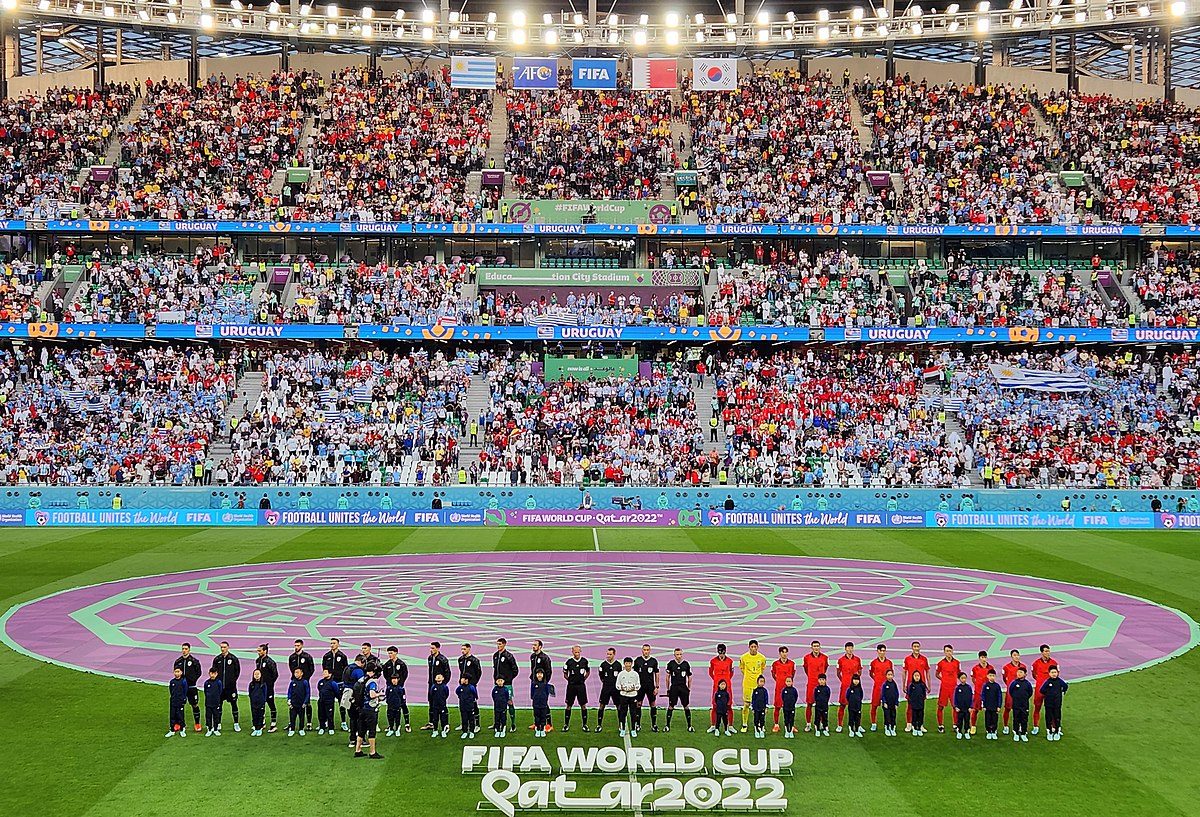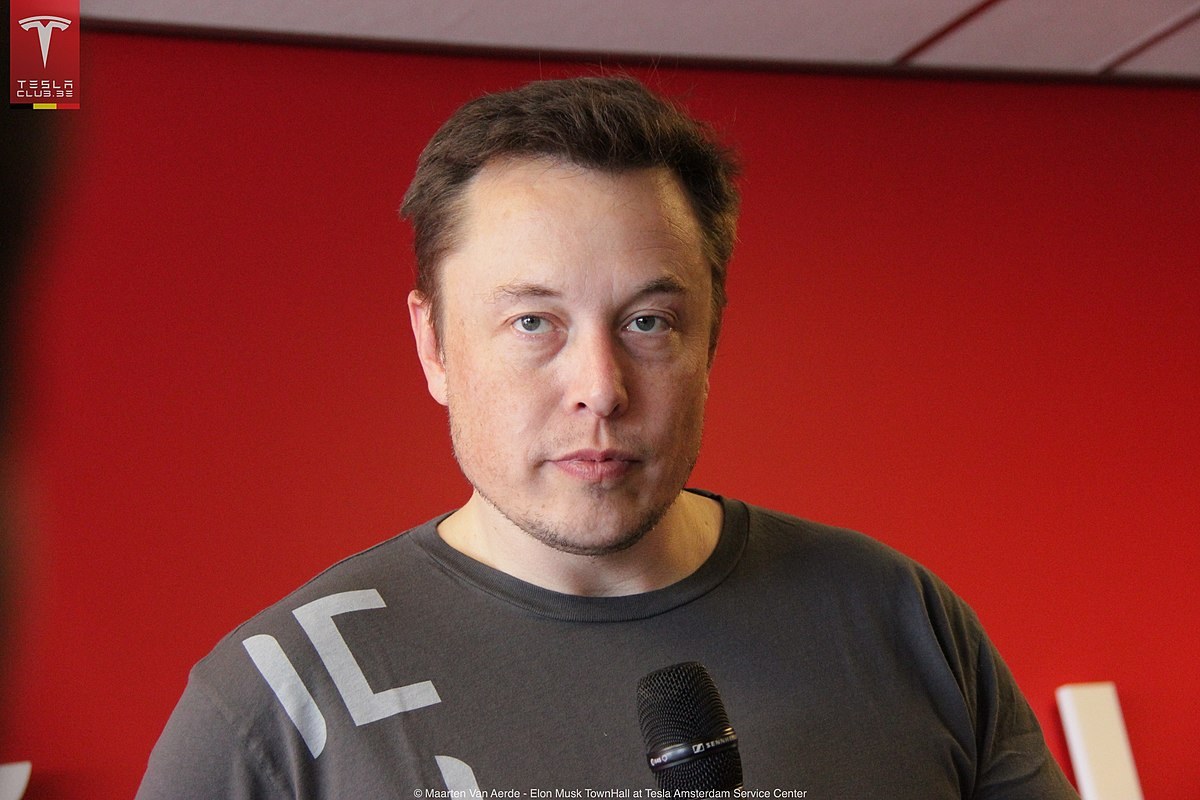Welcome to our roundup of news and current events related to ethics and international affairs! Here’s some of what we’ve been reading this past month:
 A sign explaining Covid measures in English, Japanese, Chinese, and Korean in Suzhou, China. Photo credit: Shwangtianyuan via Wikimedia Commons
A sign explaining Covid measures in English, Japanese, Chinese, and Korean in Suzhou, China. Photo credit: Shwangtianyuan via Wikimedia Commons
The Guardian: China’s Covid policy didn’t have to end in riot and protest. This is why it did.
On November 24, a fire broke out in an apartment building in Urumqi, in the province of Xinjiang. At least ten people from the Uyghur community died. They were unable to escape the fire and they could not be rescued due to a myriad of Covid policies in place, such as sealed apartments and roadblocks, inhibiting fire trucks. These deaths sparked protests and riots against the Chinese government, as officials denied there was a problem with the strict zero-Covid policy in place and attempted to deny the role of this policy in the deaths. Uyghurs have long been a targeted marginalized community in China, but this tragedy has galvanized broader society, showing cracks in the Chinese Communist Party’s hold. Had the Party acknowledged the reason for the deaths as well as changed this policy earlier, it might have prevented the mass protests spreading across the country. As it stands, it seems the Party has lost some legitimacy in the eyes of the public after a few long years under the zero-Covid policy.
Read more about China as a rising power, civil resistance, and the value of local peace in Ethics & International Affairs:
World Peace Is Local Peace (2020: 34-1)
Justifying Lockdown (May 2020)
 Natural gas well nearby Parachute, Colorado. Photo credit to the National Institute for Occupational Safety and Health (NIOSH) via Wikimedia Commons.
Natural gas well nearby Parachute, Colorado. Photo credit to the National Institute for Occupational Safety and Health (NIOSH) via Wikimedia Commons.
NPR: The U.S. wants to slash carbon emissions from power plants. Natural gas is in the way.
President Biden has set a goal of cutting all carbon emissions from power plants by 2035, but can the U.S. meet that target? Scientists agree that to avoid climate disaster, we need to keep existing pockets of non-renewable resources in the ground. However, the United States is relying heavily on natural gas as part of its carbon-neutral process. While natural gas does release less methane than coal, its production and transport releases huge amounts of methane, meaning it is not necessarily a cleaner energy than coal. The United States still uses 20 percent coal for its power plants, and the plan now is to replace this with natural gas rather than renewable. The investment in building natural gas infrastructure means that many companies are planning to have these wells operating for decades, well past the 2035 U.S. deadline set by Biden or the 2050 deadline set by scientists. Industry has little incentive to look beyond natural gas without further government aid that will promote a transition to green energy.
Read more about short-term thinking, the right of future generations to be represented in climate change debates, and climate justice in Ethics & International Affairs:
Global Climate Governance, Short-Termism, and the Vulnerability of Future Generations (2022: 36-2)
Who Should Represent Future Generations in Climate Planning? (2022: 36-2)
Climate Justice and Informal Representation (2022: 36-2)
 2022 FIFA World Cup. Photo by South Korean Ministry of Culture, Sports and Tourism Official Photographer, Heo Manjin via Flickr.
2022 FIFA World Cup. Photo by South Korean Ministry of Culture, Sports and Tourism Official Photographer, Heo Manjin via Flickr.
Washington Post: What gets missed in the angry debate over Qatar’s World Cup
The choice to host the World Cup in Qatar has been debated due to its track record on human rights, both in terms of its treatment of the LGBT community and its treatment of laborers. With the World Cup in full swing, some, like the German Interior Minister Nancy Faeser, attempted to protest with armbands in support of the LGBT community. Qatar and FIFA’s strict policies about politics in the World Cup, however, has left many fans and teams silent on controversial issues. Some in the country argue that the picture is more complicated. Since having been chosen for the World Cup, Qatar claims to have improved its employment and immigration policies, which has also benefitted fans. Qatar is also a much more affordable and accessible location for many coming from Africa and Asia, allowing for some a chance to actually come to the event in person. Qatar has also cried hypocrisy, arguing that the West violates labor laws as well.
Read more about the ethics of doing wrong, the spectrum of values, and how to construct universal values, in Ethics & International Affairs:
Do Legitimate States Have a Right to Do Wrong? (2021: 35-4)
Constructing Universal Values? A Practical Approach (2020: 34-3)
Ethical Fandom in an Era of State-Owned Teams: The Case of Newcastle United (January 2022)
 New Twitter CEO, Elon Musk. Photo from the Tesla Owners Club Belgium via Flickr.
New Twitter CEO, Elon Musk. Photo from the Tesla Owners Club Belgium via Flickr.
LeMonde: Should We Boycott Twitter?
Following Twitter's purchase by Elon Musk, there have been calls to boycott the site. This is due to some of the policies Musk has implemented on the site, such as loosening regulations that prevented hate speech. There are also concerns over his values and his growing support of right-wing extremists. Some have argued that it is the right time to quit Twitter, to not contribute to Musk’s income, and that it is morally right to indicate to him that he does not represent “the people.” On the other hand, there is value in Twitter for marginalized groups and for reaching a large audience, and an equal alternative has yet to be developed. Instead, it might be more efficient to work through the law to curtail some of Musk’s policies. Moreover, the platform is already in trouble financially and losing advertisers rather than users at the moment, which might be enough to influence Musk to change his attitude.
Read more about democracy and the Internet, business in cyberspace, and the importance of reducing discrimination for peace in Ethics & International Affairs:
Rescuing Democracy in the Age of the Internet (2015: 29-3)